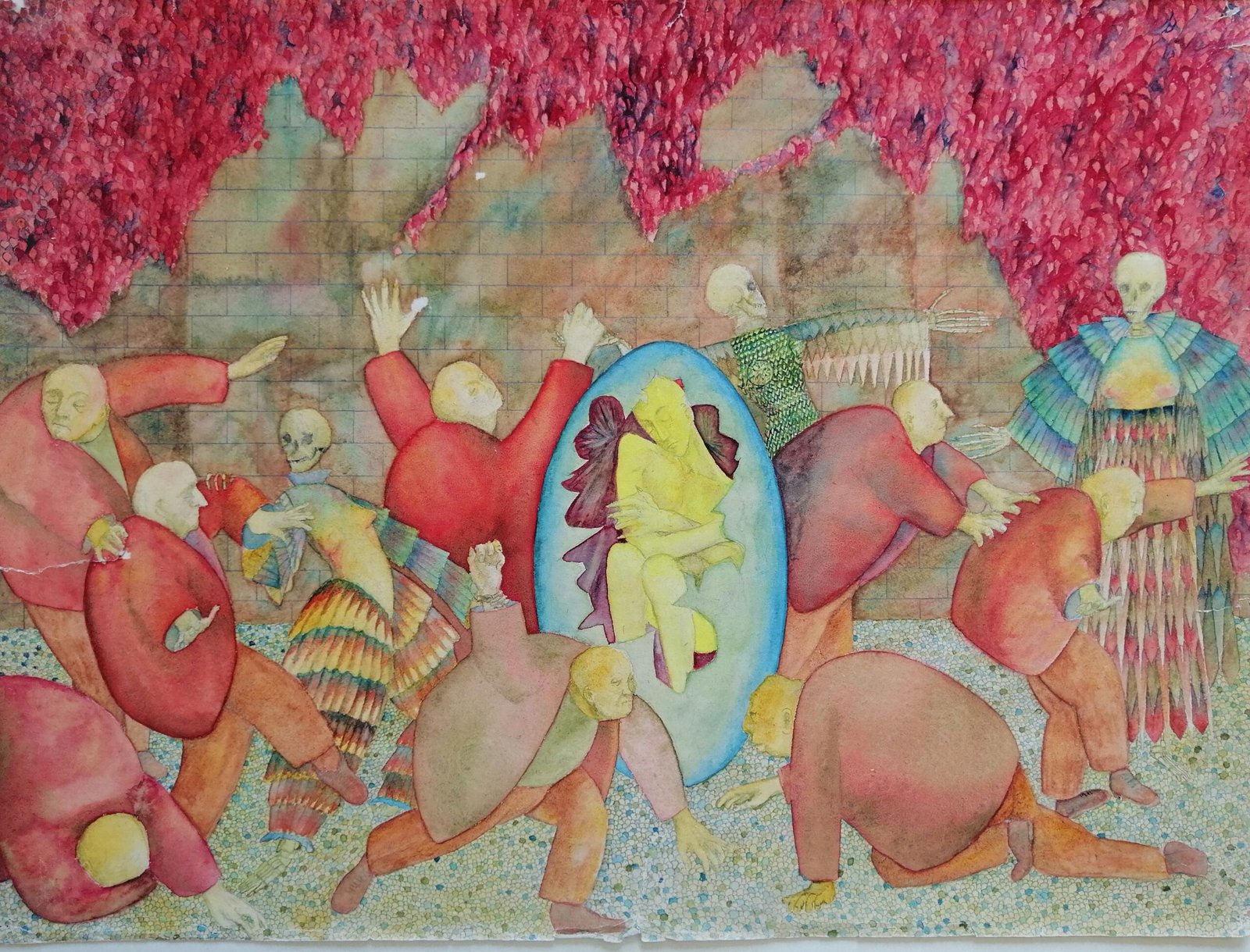Trying to grasp the world, that is ‘everything’, runs the risk of ending up as another ideology like Marxism or some fundamentalist religious view. An ideology hangs from some big idea or principle which hopes to give a basis for understanding the world. Experience is pressed into the service of this idea or is excluded because it doesn’t fit. What we are looking for is not such an idea but rather an approach to the world of experience and thought which can deal with opposites, contradictions and polarities.
The so-called objective and the subjective worlds have to be equally validated. The human being who thinks and experiences has to be kept inside this approach to the real, not kept outside as observer. The Moebius band is a useful metaphor (temporary, as we shall see) for this grand unity. The whole cannot be surveyed from any one point. Whether looking forwards or backwards the prospect falls out of sight twisting as it does. This seems to indicate that the unseen may not be assumed to be a simple extension and continuation of what can be seen.
Our metaphor might be judged to be flawed from the beginning. How can the unseen be included if its reality does not rest on tangible and visible experience? ‘Out of sight, out of mind’ as the saying goes. But in fact the mind is made to apprehend the invisible as well as the visible. The Moebius metaphor connects with a basic almost unconscious assumption that we are part of a whole although we may never know that whole. Our experience, our thoughts, our meeting with the other or with nature rest on that assumption. We enquire about the world, we investigate it because we sense that it is coherent, it all belongs. Without ever being able to grasp the whole, wholeness penetrates our vision.
You can compare this with our experience of language. There exists an English language, a Chinese, an Arab and other languages. No-one who uses English knows the whole language, maybe only a small part of it, say, 1000 words. But there is an underlying consciousness that a whole language is at hand which includes the language of Shakespeare who used 23,000 words and of many others. The wholeness is not a fixity as it evolves adding new words and discarding others. It is an organic whole. A baby enters this whole organism of language with surprising confidence. He/she from the beginning takes up language where everything that he/she will want to say can be said. In this vague sense of wholeness language seems like a mirror of creation.
Now it is difficult to search for, never mind substantiate, this whole, in a culture in which the starting point is the fragment – atom, Higg’s boson, light particle, gene, items and numbers . How can one start from the whole if one doesn’t know it already? This is the big question and a huge problem for current attitudes. Since quantity is the essence of scientific understanding it tends to reduce all to measurable units in the hope that the whole will eventually emerge.
We live in a time of hunter-gathers.
‘I thought they lived in the Stone Age!’
We have made a modern version. They hunted wild boar and gathered berries in the forest. The modern hunt is in the forest of finance. There is another difference. They had a care for the prey that fed them, sustained them and they shared what they gathered. The modern HG’s do neither. The Stone Age HGs had an experience of the whole; they participated in the whole of nature and felt united with it in the spirit. Modern HGs do well in an age of fragmentation.
I think that today we have an antipathy to wholeness. Why should that be? There is no simple answer. We are educated to see ourselves as mere parts measured against other parts. My identity is derived from outside i.e. social status, class, work, group whether nation, cult or gang. When I am aware that these relations are limited and I am not dominated or taken over by them then an experience of the whole begins to emerge. It is sometimes claimed that a sense of I or self is based on one’s own collection of memories. But this is only part of our base. The intentions I have, my purposes, the things I will for the future give a ground to my sense of individuality. (individual = undivided)
The geranium on my window-sill exhibits wholeness although it is joined up with earth and atmosphere and human attention. Wholeness is not completeness. Like the moebius band all the geranium can’t be seen at one time from one point of view. But at each stage, seed, shoot and flower the whole is present.
The understanding that comes from the analysis of parts needs to be united with the understanding that comes from the experience of the whole. What kind of understanding is this? How is it achieved? At least I’m sure the whole is not something out there waiting to be discovered.

